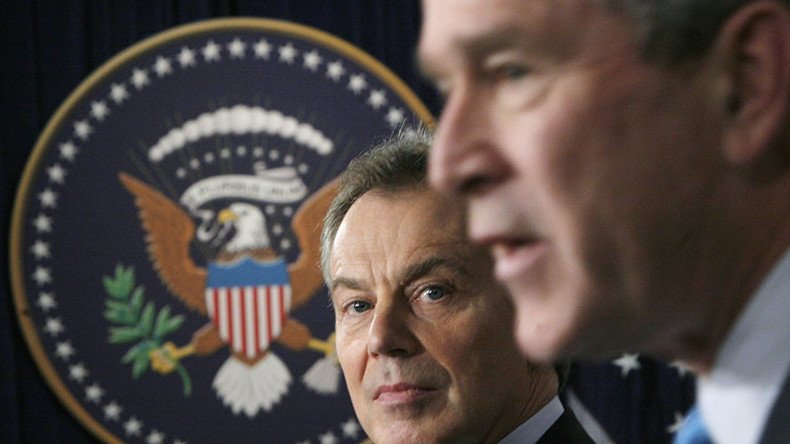Tony Blair’s letters to George W. Bush to be released... but not the president’s replies

Secret correspondence between former British Prime Minister Tony Blair and ex-US President George W. Bush will finally be published in connection with Sir John Chilcot’s long-anticipated Iraq War Inquiry report.
A total of 29 missives written by the former Labour leader to the US president will be shown to the public for the first time on Wednesday, although some will be redacted on alleged security grounds.
Bush’s letters to the British premier, however, will not be released.
Both Tory leader David Cameron and Labour boss Jeremy Corbyn received copies on Tuesday in order to plan their responses to the documents.
Sarah Helm, the wife of Blair’s then chief of staff Jonathan Powell, wrote in the Guardian earlier in the week that Blair and Bush often exchanged flatteries.
Having overheard a phone call between the two leaders in March 2003, days before the first US attacks, she writes: “But before he hangs up, Bush feels a need – once again – to bolster Blair.”
This Bush-Blair transcript from March 2003 is beyond parody. Bush: 'I'm just ready to kick ass.' pic.twitter.com/jYHEMnC6q0
— Daniel Bentley (@danielbentley) July 5, 2016
In her view Blair was too weak to confront the US president and the Iraq War was his “his political demise.”
Stop the War convener Lindsey German told RT: “Bush and Blair were a mutual admiration society. These letters will no doubt tell us how much they admired each other's 'bravery' and 'courage' in taking us into an illegal war.”
The letters were one of the main obstacles to the speedy completion of the Chilcot report, with personal correspondence between political leaders normally being withheld for 30 years.












